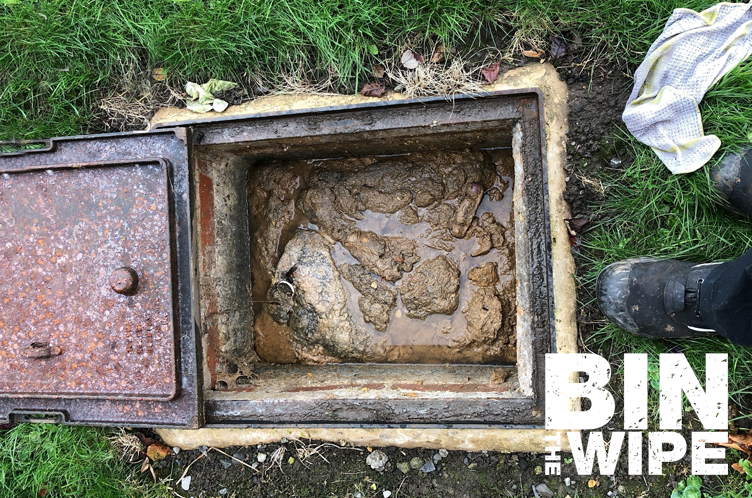Northumbrian Water is bringing its Bin the Wipe campaign back to Stockton to help protect homes and the environment from sewer flooding.

When people flush wipes down the toilet, it risks blockages that can force waste back into people’s homes or out into the environment.
The TS20 2 area of Stockton has been identified as one of the region’s hot spots for wipes found in blockages.
After finding wipes in more than 60% of the blockages its teams cleared in 2019, making them the number one contributor to such problems, the water company established Bin the Wipe to reduce the risks to homes and the environment.
Customers in the hot spot area will this week have received letters explaining the problems and how they can help – to simply not put wipes down the loo, even if the labelling says they are “flushable”.
A team of sewer workers will now spend time monitoring the area’s pipes and tracking poor flushing behaviour back to the homes where it is happening, allowing for direct conversations about the issue.
The TS19 area of Stockton was home to the pilot of the Bin the Wipe campaign, and the area of that focus saw the number of wipes found in the sewer drop by 61% against the previous four year average.
More than two years on, checks are showing the good behaviours have been maintained and even improved, with an 80% drop in the number of blockages containing wipes in the area, and Northumbrian Water is hoping people in the new hot spot will be inspired to try to mirror those improvements.
Simon Cyhanko, Head of Wastewater Networks at Northumbrian Water, said: “Stockton has embraced the Bin the Wipe message in the past and we are hoping that our customers in TS20 2 will do the same and help us make a real difference in cutting blockages.
“The campaign makes it so easy for people to play a huge part in protecting their homes, those of their neighbours, and also the environment. If you flush wipes, stop.
“We have seen some brilliant results where people have changed their habits, and we know that even in a hot spot such as this there will be customers who never flush wipes. We would like to say thank you to all of those people. If we can get others to do the same, it’s a big win for everyone.
“Whatever the label says, wipes don’t break down the way toilet paper does, and they settle or catch in pipes, joining with other unflushables and causing truly nasty problems. So please, Bin the Wipe.”
